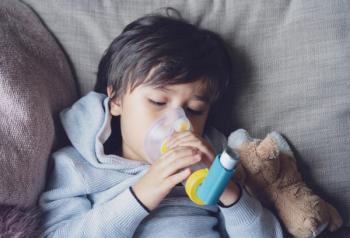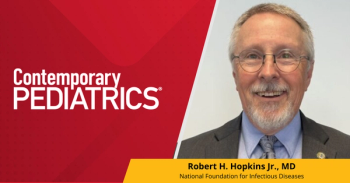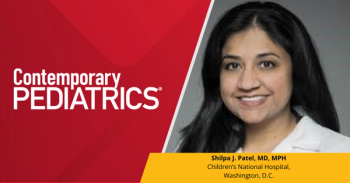
Examining the efficacy of dupilumab for uncontrolled asthma in kids 6-11
Used to treat asthma in adolescents and adults, a clinical trial examines whether it would be effective in treating uncontrolled asthma in younger children.
In spite of the available therapies, some children with moderate-to-severe asthma may have disease complications. The monoclonal antibody dupilumab is approved to treat asthma in adults and adolescents. It’s currently in a Phase 3 trial for younger children to provide information on the efficacy of the treatment and a
The trial was a 52-week, randomized, double-blind, placebo-controlled trial. Participants were aged 6 to 11 years and had uncontrolled moderate-to-severe asthma. They were randomized to either receive a subcutaneous injection of dupilumab (either a dose of 100mg for participants weighing 30 kg and 200 mg for children weighing >30 kg) or a matched placebo every 2 weeks. The children continued to receive a dose of standard background therapy during the trial. In addition to the primary endpoint of the annualized rate of severe asthma exacerbations, investigators were also looking at the change from baseline to week 12 in the percentage of predicted prebronchodilator forced expiratory volume in 1 second (ppFEV1) as well as a change in the score on the Asthma Control Questionnaire 7 Interviewer-Administered at week 24.
Among participants who had a type 2 inflammatory phenotype, the annualized rate of severe asthma exacerbation was 0.31 for (95% confidence interval, 0.22 to 0.42) with dupilumab and 0.75 (95% CI, 0.54 to 1.03) with placebo, resulting in a relative risk reduction in the dupilumab group, 59.3%; 95% CI, 39.5 to 72.6; P<0.001. The average change from baseline in(ppFEV1) in the dupilumab group was 0.5±1.0 percentage points and 5.3±1.4 percentage points in the placebo group resulting in an average difference of 5.2 percentage points; 95% CI, 2.1 to 8.3; P<0.001. For the phenotype, investigators found that dupilumab led to much better asthma control than placebo (P<0.001). They also found similar results in the participants who had an eosinophil count of at least 300 cells per cubic millimeter at baseline. Serious adverse events incidence was roughly the same for both groups.
The investigators concluded that among children who had uncontrolled moderate-to-severe asthma, the participants who were given add-on therapy of dupilumab had better lung function and asthma control as well as fewer asthma exacerbations, when compared to placebo.
Reference
1. Bacharier L, Maspero J, Katelaris C, et al. Dupilumab in children with uncontrolled moderate-to-severe asthma. N Engl J Med. 2021; 385:2230-2240. doi: 10.1056/NEJMoa2106567
Newsletter
Access practical, evidence-based guidance to support better care for our youngest patients. Join our email list for the latest clinical updates.








